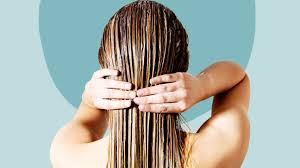Hair type is determined largely by genetics, but maintaining hair length, volume, and texture requires the right products. Our hair type is one of the most important factors that influence what hair products we use. In order to select the perfect products, we must understand how hair types differ. Look for Everescents shampoo that might suit your hair.
Table of Contents
What is the best way to identify hair type?
A hair type can be straight, wavy, curly, or coiled depending on its shape. In addition to its shape, the density of hair can vary. With thin hair volume, it is possible to see the person’s scalp while brushing their fingers throughout their hair, but with thick hair volume, it is much harder to see the scalp.
Hair types can be classified according to greasiness:
- Oily hair: Oily patches appear throughout the scalp of people with oily hair.
- Dry hair: Dry hair indicates an insufficient supply of hydration because it lacks oil on the scalp.
- Combination hair: Oil is deposited on some areas of the scalp in people with mix hair, while the remainder of the scalp stays dry.
How should one choose a shampoo?
A shampoo helps remove dirt, oil, and other build-ups from the hair and scalp, so it’s an essential part of hair care. It is crucial to note that not every shampoo is suitable for all hair types. Thus, the choice of shampoo should be made according to the type of hair.
- Mixture hair shampoo: Combination hair tends to need a shampoo that leaves natural oils in the hair strands while smoothening and cleaning it. Combination hair is best washed every other day or every other week.
- Using shampoo on dry hair: People with dry, brittle, and frizzy hair should use shampoo infused with oils (coconut or olive), creams (shea butter), and proteins to keep the strands moist. Each time they wash their hair, they must use a moisturizing conditioner.
- Shampoo for oily hair: In order to remove excess oil from the scalp, oily hair shampoo should have astringents, lauryl sulphate, and astringents. Hair conditioning should be avoided frequently by people with oily hair, since it can clog hair follicles.
- Shampoo for thin hair: Humectants such as panthenol and wheat protein thicken hair strands and prevent hair breakage with shampoos that contain these ingredients.
- Shampoo for curly hair: To restore bounce and moisture to the strands, curly hair requires a shampoo that is free of sulphates.
- Shampoo for coloured hair: Chemically treated hair needs a good coloured hair shampoo that protects it from harsh sun rays and makes sure that its color doesn’t fade. Protect your hair from UV ray damage by using a leave-in conditioner that contains zinc oxide. Colored hair should not be washed with shampoos containing sulphates, you can always use since those can break open the hair cuticle, allowing the colour to become less durable.
What are the things to avoid when choosing shampoo for hair?
Although shampoo can be beneficial for hair health, some ingredients may cause itchiness and inflammation on the scalp. Shampoos should not contain any of the following ingredients:
- sulphates : As a cleaning agent, sulphates are very common in most shampoos as they help to remove dirt, oil, and other substances from the scalp. Some sulfates can be harsh on the hair, causing breakage for people who have dry and frizzy hair. Premature greying is also an issue caused by some sulfates.
- Sodium chloride: It helps to make shampoos more consistent. Sodium chloride (often referred to as table salt) can, however, irritate the scalp and eyes. Hair strands can be dehydrated by sodium chloride, resulting in dryness and breaking.
- Paraben: Paraben is an additive in shampoos which increases the shelf life. Parabens, however, can cause allergies and rosacea.
- Alcohol: Shampoos contain different types of alcohol to lock moisture in the hair. A high percentage of alcohol can, however, result in dry or frizzy hair because it irritates the scalp and dehydrates the hair.
- Formaldehyde: A preservative added to shampoos, formaldehyde is used to protect the hair from ultraviolet rays. It can, however, cause allergies and itching due to the fact that it is a carcinogen (substances that can lead to cancer).
Conclusion
In order to ensure proper hair health, it is important to know your hair type since it helps in deciding what type of hair-care products you will need. Sulphates, sodium chloride, and parabens are all toxic ingredients that should not be found in shampoos. A dermatologist should be consulted before investing in a hair product if you have excessive dandruff or persistent hair loss.

